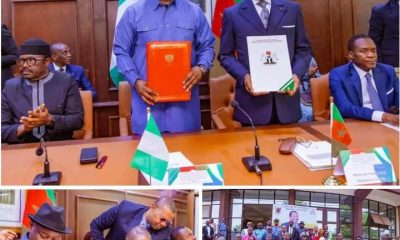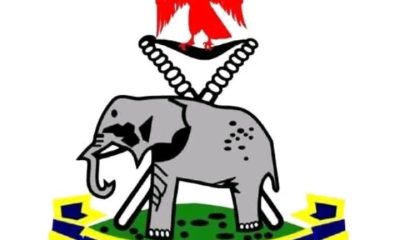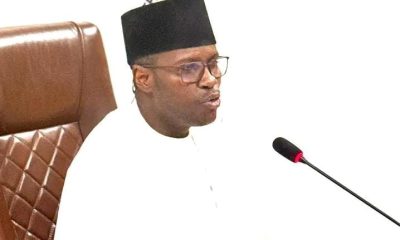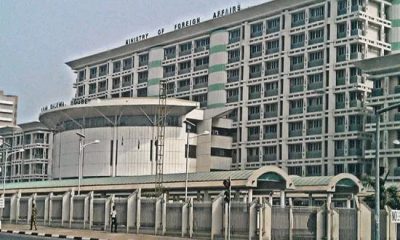National
Reps Fault US Report On Killing of Christians in Nigeria
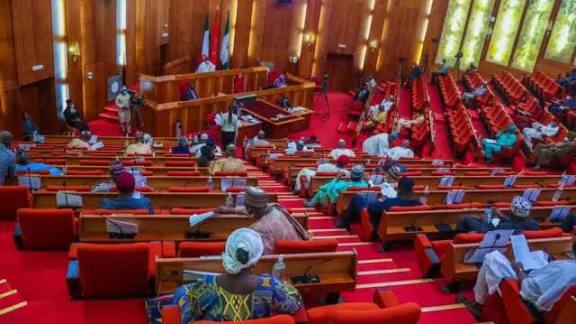
By Alkassim Bala Tsakuwa, Abuja
The House of Representatives has rejected the plan by the United States of America (USA) to designate Nigerians as as a ‘Country of Particular Concern (CPC) and impose sanctions on its officials because of the persistent security challenges as a result of the activities of non-state actors and other criminals.
This was contained in a motion of urgent national importance sponsored by the Deputy Speaker, Hon. Benjamin Kalu and 358 Other Members of the House presented at the Plenary on Wednesday.
Presenting the motion, the lawmakers stated that, the motion was a response to the ‘Proposed Nigeria Religious Freedom Accountability Act of 2025 (U.S. Senate Bill S.2747) and to Mischaracterisations of Nigeria’s . Security and Religious-Freedom Landscape’.
The motion notes that a bill titled ‘the Nigeria Religious Freedom Accountability Act of 2025 (S.2747) was introduced in the United States Senate on September 9th September 2025 seeking to require the U.S. Secretary of State to designate Nigeria a “Country of Particular Concern” (CPC) and to impose sanctions on Nigerian officials under Executive Order 13818 (Global Magnitsky) and related authorities.
The motion added that, the U.S. Commission on International Religious Freedom (USCIRF) had in its recent Annual Reports recommended Nigeria for CPC designation, citing persistent violations and state failures to protect against non-state actor abuses.
The lawmaker stated that, “Nigeria’s Constitution guarantees freedom of thought, conscience and religion and bars adoption of a State religion, and that successive administrations, security agencies, faith leaders and civil society continue to undertake measures to protect all worshippers and prosecute offenders, as reflected in the U.S. Department of State’s 2023 country chapter and prior reports.
“Insecurity in Nigeria is complex and multi-causal – driven by insurgency, criminal banditry, farmer-herder conflict, separatist violence and communal disputes – affecting citizens of all faiths; international reporting attributes a significant share of fatalities to terrorist groups and criminal gangs rather than State policy or a single religious dynamic.
“External legislative actions based on incomplete or decontextualised assessments risk undermining Nigeria’s sovereignty, misrepresenting facts, straining strategic relations, and unintentionally emboldening violent actors.
“Mindful of Nigeria’s longstanding partnership with the United States on counter-terrorism, human rights, democratic governance and inter-faith _ dialogue, and the African Union’s emphasis on tolerance and inclusive societies”.
The House therefore condemns all forms of violence and persecution against any person or group on the basis of religion or belief and commiserates with all victims irrespective of faith.
It also rejects outrightly narratives that frame Nigeria’s security crisis as a singularly religious conflict or as State-sponsored persecution, and reaffirms Nigeria’s constitutional protections for freedom of religion and belief.
The House mandates the Committees on Foreign Affairs, National Security, & Intelligence, Interior, and Information, National Orientation & Values , police affairs, civil society, human rights to within 21 days coordinate.
Directs the Federal Ministry of Foreign Affairs and the Nigerian Embassy in Washington, D.C. to lodge a formal diplomatic demarche to the sponsors of S.2747 and relevant U.S. committees, transmitting empirical data and Nigeria’s official position.
Called on the U.S. Mission in Nigeria and interested U.S. legislators to propose a Nigeria-U.S. Joint Fact-Finding and Dialogue Mechanism on freedom of religion or belief (FoRB), with participation from faith leaders and independent experts, and to invite USCIRF to a hearing/briefing of this House to examine sources, ethodology and remedies.
The House further mandates the Committee on Legislative Compliance to ensure execution of these resolutions and to report back to the House within 28 days.
It also ordered that the Resolution be transmitted to The Presidency, Federal Ministry of Foreign Affairs, and Heads of Security Agencies.
It is to also be transmitted to the United States Congress leadership (Senate Foreign Relations; House Foreign Affairs), the U.S. Department of State, and USCIRF; The African Union and ECOWAS Commissions.

